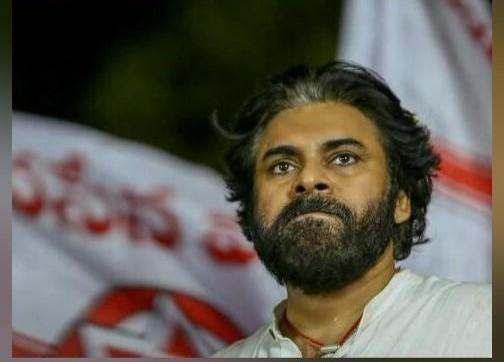
Like PM, Kalyan Switches to English while Speaking on J&K Attack
In a striking move, Andhra Pradesh Deputy Chief Minister Pawan Kalyan recently switched from Telugu to English during a speech, sending a powerful message about India’s fight against terrorism. This unexpected move has sparked widespread attention and admiration, with many praising Kalyan’s bold stance on the issue.
The incident occurred when Kalyan was speaking about the recent terror attack in Pahalgam, Jammu and Kashmir, which resulted in the loss of several innocent lives. In a rare display of linguistic adaptability, Kalyan seamlessly shifted from speaking in Telugu to English, conveying his strong sentiments on the matter.
“The attack has been one of the darkest days in entire country,” Kalyan said, his voice filled with emotion and conviction. His sudden switch to English sent a clear signal that the attack was not just a local issue but a national tragedy that demanded immediate attention from the entire country.
This move is reminiscent of Prime Minister Narendra Modi’s recent address to the nation, where he switched from Hindi to English to stress India’s unwavering commitment to combating terrorism. In his speech, Modi emphasized that terrorism had no religion and that India would not be intimidated by such cowardly acts.
The recent terror attack in Pahalgam has left the nation in shock, with many calling for stronger measures to be taken against terrorism. The attack, which claimed several lives, has also sparked widespread outrage and condemnation from all corners of the country.
Kalyan’s decision to switch to English during his speech was seen as a bold move, one that demonstrated his commitment to the nation’s fight against terrorism. By using English, a language understood by people across the country, Kalyan was able to convey his message to a wider audience, including those who may not have spoken Telugu.
This move has also sparked a debate about the use of language in political discourse. While some have praised Kalyan’s decision, others have questioned the necessity of switching languages mid-speech. However, it is undeniable that Kalyan’s move sent a powerful message about India’s determination to combat terrorism, a message that resonated with people across the country.
In recent years, there has been a growing trend of politicians using English to convey their messages to the nation. This shift towards English is seen as a way to reach a wider audience and to convey a sense of unity and national pride. By using English, politicians can transcend linguistic and regional barriers, creating a sense of shared identity and purpose.
Kalyan’s move has also raised questions about the role of language in politics. Is it necessary for politicians to switch languages mid-speech, or can they stick to their native tongues? While some may argue that switching languages can be seen as a way to appease a wider audience, others may see it as a genuine attempt to convey a message that transcends linguistic and regional barriers.
The use of English in political discourse is also a reflection of India’s evolving linguistic landscape. With the rise of globalization and technological advancements, English has become an increasingly important language in Indian politics. As politicians seek to connect with a wider audience, they are turning to English as a way to convey their messages and ideas.
In conclusion, Pawan Kalyan’s decision to switch to English during his speech on the J&K attack was a bold move that sent a powerful message about India’s fight against terrorism. By using English, Kalyan was able to convey his message to a wider audience, creating a sense of unity and national pride. As politicians continue to navigate the complex landscape of Indian politics, it will be interesting to see how language plays a role in their discourse.
Source: https://youtu.be/hl6_hZOnkFA






